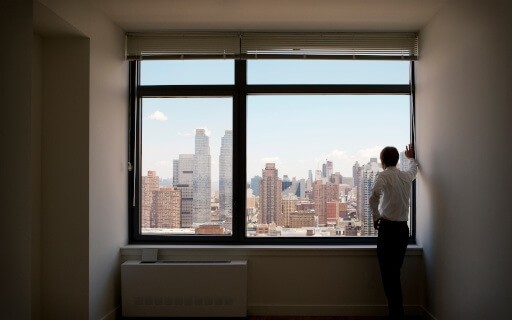You want your tenants to feel at home in your rental. After all, happy tenants tend to stay longer, which provides you with guaranteed income for the long term. But what if your tenants take it a little too far and make repairs you didn’t authorize? Maybe your tenant hired a contractor to make repairs without asking you. If you find yourself staring at an invoice for repairs you didn’t request, you may be wondering … do I have to pay?
In most cases, you don’t have to pay for unauthorized repairs. Regardless, the situation might be difficult to navigate, so let’s explore how to best handle it.
When Can a Tenant Make Repairs?
As a landlord, you are responsible for providing a livable home. The “implied warranty of habitability” may vary from state to state, but you must meet some basic requirements regarding plumbing, heat, and water to satisfy this legal doctrine. State and local housing laws should outline what a tenant may or may not do if the home isn’t habitable. The laws may also specify how much time you have to address a specific repair.
Depending on state law, if you don’t fix an issue that inhibits habitability within a certain time frame, tenants may have the right to make those types of necessary repairs and deduct rent to pay for them. This is often referred to as “Repair and Deduct.”
Some states allow tenants to have repairs made after providing the landlord a written cost estimate by a professional. You may be required to approve and inspect repair work in this case. To see what tenants can and cannot do, be sure to read your state and local laws. If you have questions, contact a real estate attorney in your area.
What Is Considered an Unauthorized Repair?
Before renting out your property, determine what you are comfortable allowing tenants to handle. For example, you might be fine with allowing them to paint if they seek prior approval, pay the cost, and you agree to the color. You might allow them to change the batteries in the smoke detector or change air filters. You probably won’t want your tenants calling you for every minor repair, so specify what they will be allowed to do and what they absolutely should not do.
When writing your lease agreement, include a clause for repairs. If you don’t want tenants making any repairs, state it as such: “Tenant shall not make repairs or hire contractors to make repairs.” You might also want to include language around repairs done without your consent: “Under no circumstances will the landlord be responsible for any repairs or improvements made without written authorization.”
Tenants might want to swap out light fixtures or replace blinds with curtains. If you choose to allow these minor alterations, state in the lease agreement that the home must be restored to its original condition before move-out.
Be sure to specify that all requests must be made in writing. Having a written record will protect you and your tenant. If there’s a situation that needs immediate attention, they’ll likely call you. In this case, you can either ask that they put the request in writing or send them a follow-up email after the phone conversation addressing the issue and how you will proceed with repairs. Have your tenant acknowledge the email so they can’t claim later that they never saw it.
What if the Tenant Never Reported the Issue?
Your tenants may make hasty repairs when they break or damage something, especially before they move out. If, for example, a tenant breaks a window and has it replaced without letting you know, this is an unauthorized repair that could have a long-term impact on your property if the window was installed incorrectly. While your tenant would be obligated to pay for the damage, they don’t have the right to authorize this sort of repair — even if they pay for it.
If you find this has occurred, you can require the tenant to pay to have the work redone by a contractor of your choosing. If you spot haphazard repairs when the tenant is moving out, consider deducting the cost of the corrective repairs from their security deposit. Inadequate repairs constitute damage, not normal wear and tear.
The bottom line: It is your property, and you should decide who to hire and how much to pay for repairs. Unless it is a habitability issue and you were given proper notice in writing according to local laws, your renters shouldn’t make repairs without your knowledge and consent. To avoid any issues, be very specific in your lease agreement that unauthorized repairs are not permitted and outline the consequences for making such repairs.
How to Handle Emergencies in Your Rental
In some situations, you may want your tenants to handle an issue on your behalf and then invoice you. In some states, it’s permitted for tenants to authorize repairs in the case of an emergency if they are unable to contact you. An emergency is typically defined as an event threatening the immediate health and safety of the tenant, or the building itself is at risk without immediate work. In your lease agreement, outline exactly what amounts to an emergency in accordance with your state law.
Steps to Take When Dealing with Unauthorized Repairs
If your renters are in violation of your lease agreement by making unauthorized repairs, there are some steps you can take to rectify the situation.
First, if your tenant reached out to a contractor to have work done, contact that vendor and inform them that you are the owner of the property and you did not authorize the work.
Next, reach out to your tenant and find out why they had work done without your approval. In many jurisdictions, a landlord has the right to evict tenants who make unauthorized repairs or alterations to the dwelling.
Tell your tenant that as it is an unauthorized repair, they will have to pay for it.
Decide if you want to evict. You’ll want to look up your state laws and contact a real estate attorney to find out what the laws are in your area. You will have to send the tenant a “quit or cure” notice, which lets the tenant know they have violated the lease agreement. The “cure” portion of this notice would allow the tenant to rectify the situation by paying the vendor bill. If the tenant doesn’t do this, they will “quit” or leave the property. If they do neither, you’ll have to start the eviction process.
Eviction laws are very strict, so consult a real estate attorney to ensure you are following the proper procedure.
The best way to avoid any issues is to outline everything in your lease agreement. Have your lease agreement reviewed by an attorney in your state. Consider creating your lease through Apartments.com — these leases are created in consultation with leading lease attorneys to be compliant with your state and local laws.











